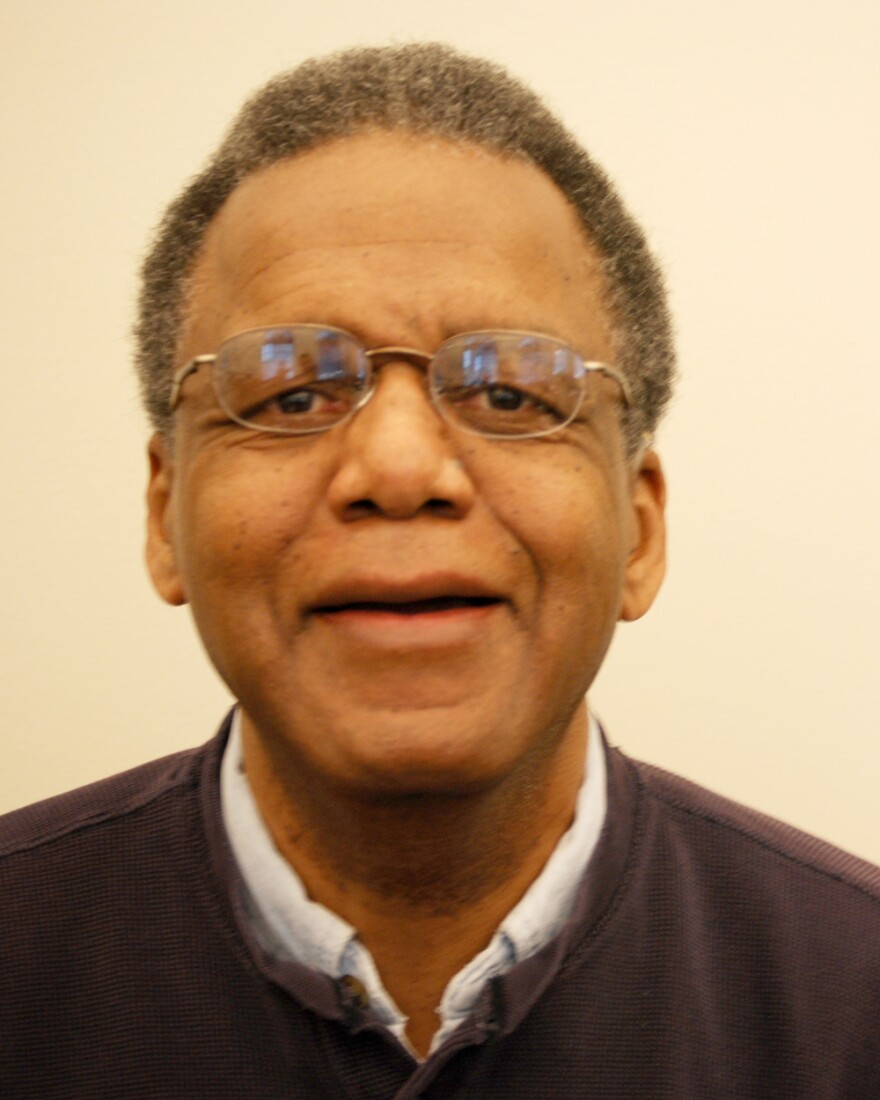Robert Joiner, St. Louis Public Radio’s health reporter, is not the kind of person who calls attention to himself. At staff meetings, he speaks sparingly. He chooses words carefully.
It’s worth paying attention to what he thinks.
And especially this week – his last before retiring -- it’s worth paying attention to what he’s done. I’ve known Bob since the 1970s when we shared a desk as young reporters at the St. Louis Post-Dispatch. Over the years, as the challenges for journalism have deepened, my respect for Bob has soared.
When some Post-Dispatch ex-pats started the St. Louis Beacon six years ago, we immediately recruited Bob for the staff. As the Beacon’s first political reporter, he shared a wealth of knowledge about power, personalities and issues -- plus a fierce commitment to explain how all of that affects people.
That same commitment shapedhis work as a health reporter at the Beacon and at St. Louis Public Radio. Bob’s career also has included stints in the Post-Dispatch Washington Bureau, as a P-D editorial writer and P-D columnist as well as editor of the St. Louis American. But you can’t measure Bob’s value only by titles. Rather, you need to consider the character and insight he’s brought to his work.
While many reporters recount what happens, Bob has aimed to explain what’s really going on. While many build connections with elite sources, Bob also has built a picture of the world from the bottom up. While many ignore the context of current issues, Bob has revealed the cross-currents of history and experience that shape our world.
A great example of what makes Bob’s work so valuable can be found in his occasional profiles of African Americans in St. Louis who excelled despite segregation and fought to end it. These pieces evoke a transformational era that laid the groundwork for what has – and has not – happened since. They help to explain why race continues to affect almost every regional issue. Bob brought these stories to life.
At a time when celebrity journalism is on the rise, Bob lets his work speak for itself. But he did agree to reflect on what he's proudest of and on the role of news organizations. His answers might inform your own thinking about what makes for great reporting.
On the ground experience:
“Some of my proudest work in recent years has focused on health and the challenges residents face in trying to stay fit. I wanted readers to appreciate some of the factors beyond will power that explain why obesity is more prevalent in some places than others. I tried to use words to paint pictures of largely deserted neighborhoods of crumbling sidewalks, gun violence, and other conditions that have made those left behind feel less comfortable about engaging in the simple pleasure of going for a healthy walk. "I also take pride in the way another set of related stories called more public attention to the possibility that the absence of major grocery stores and other amenities in some neighborhoods probably has contributed to our runaway diabetes, hypertension and heart disease."
Luck:
"Some assignments that seemed boring at the time turned out to produce surprises. On a slow news day many Sundays ago, for example, I was asked to drive to the airport to interview a politician nobody knew much about. Sounded like just another guy begging for an audience during a layover at Lambert. His name was Jimmy Carter. Meeting him turned out to be a nice coincidence because I would eventually become a Washington correspondent assigned to cover part of his administration.”
Fairness:
"Now more than ever, reporters and news organizations should feel a responsibility to hold themselves to high standards of accuracy and fairness in what they print and broadcast. This challenge took on added importance with the ever emerging sources of information, thanks to the internet and social media. We are conditioned to do our best to break stories ahead of the competition. That’s certainly a worthy mission, but what’s the point of breaking a story a minute ahead of the competition if the information turns out to contain inaccuracies? I hope news organizations will pay more attention to that question."
Bridging divides:
"As the St. Louis region becomes more diverse, one big challenge for reporters and news organizations is how to cut through generalities and make information meaningful to more potential readers, listeners and viewers. We should always strive to add a little context to what we report. When we note that a murder occurred in the Fountain Park neighborhood, for example, it would help the outsider if we made references to landmarks and other community characteristics that offer a sense of place and help people remember the neighborhood for something more than the site where a body was found. By humanizing the neighborhood, we can give the public a broader view that life there isn’t just about crime. "I also hope we also do more to call attention to similarities that show we all are part of the same human fabric. I especially hope we can do more to heal division, whether it’s the Delmar divide, the city-county divide, or the Mississippi River divide.”



